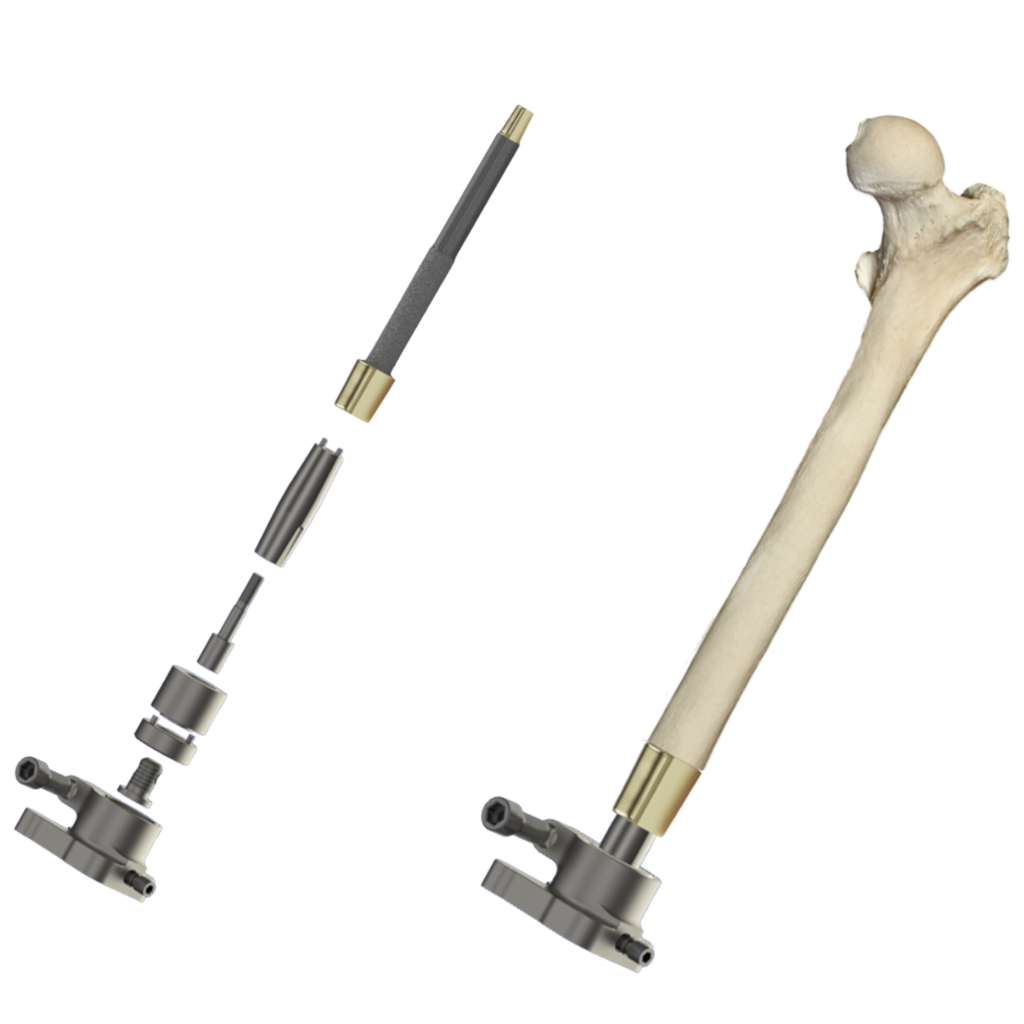Find out more about Osseointegration
We value your news, stories, feedback, and enquiries about osseointegration. Our dedicated team is available and can provide the information you need.
Osseointegration (also known as Direct Skeletal Fixation – DSK) involves inserting a prosthetic implant into the residual bone of an amputee, allowing for the direct attachment of an external prosthesis to the skeleton. This procedure removes the need for a traditional socket-mounted prosthesis.
Many patients wonder if the cause of their amputation would affect their suitability for the surgery. It is worth noting that a large portion of patients undergo amputation due to trauma. However, the second most common cause is infection, often resulting from joint replacements.
It is crucial to exercise caution when contemplating the procedure for patients who have received radiation therapy at the amputation site, as it can affect the outcomes. Nevertheless, it is important to highlight that the procedure is still a viable option for many amputees, providing notable advantages in terms of comfort, mobility, and alleviation of pain.
Osseointegration was first introduced as a two-stage procedure. This approach involved implanting a press fit intramedullary component followed by a 6-8 week period of passive healing. Then, a second surgery was needed for the insertion of dual cone and external components. After this, rehabilitation would be commenced.
Since 2014, a modification to the surgical technique and the development of a new implant design has been introduced by Professor Munjed Al Muderis. This advancement enables the performance of single-stage surgery without compromising outcomes, thereby eliminating the requirement for a second operation and the associated risks.
Additionally, it enhances soft tissue management, accelerates rehabilitation, facilitates earlier return to work, and reduces overall costs.

We value your news, stories, feedback, and enquiries about osseointegration. Our dedicated team is available and can provide the information you need.

The Osseointegration Group provides a team approach to assist amputees achieve freedom through mobility and comfort using the newest innovations in the field of prosthetics.
Information provided via this website is for educational and communication purposes only. The material presented is neither intended to convey the only, nor necessarily the best, method or procedure, but rather represents techniques and procedures used by The Osseointegration Group (OG). OG disclaims any and all liability for injury and/or other damages which result from an individual using techniques presented on this website. To the best of our knowledge, we believe the information presented is current and applicable to work being done by orthopaedic surgeons worldwide